02:06
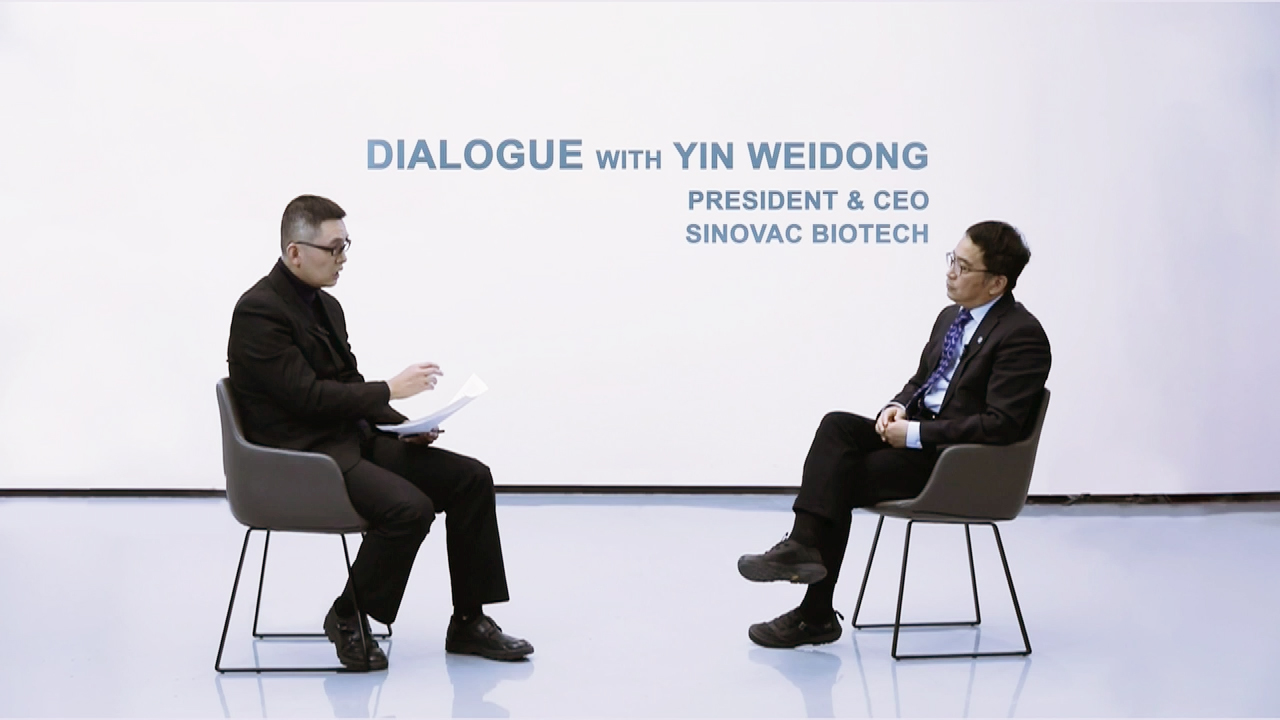
As of March 2021, coronavirus had killed over 2.6 million and sickened over 117 million people globally. Vaccines are believed to be a game changer and there are already at least ten vaccines in use around the world. The CoronaVac by Sinovac is among the front-runners. It has been approved for emergency use in more than 20 countries and regions. That means the company must scale up its production, and fast. The plan is to produce 2 billion doses by June. In just a few months, the company recruited 2,000 employees from around the country, leased a factory from another company, and begun their vaccine production on a scale never tried before.
CGTN Dialogue visited Sinovac's newly built facilities in southwest Beijing and sat down with its CEO, Dr. Yin Weidong.
What is the meaning of the results of the Phase III clinical trials?
03:14
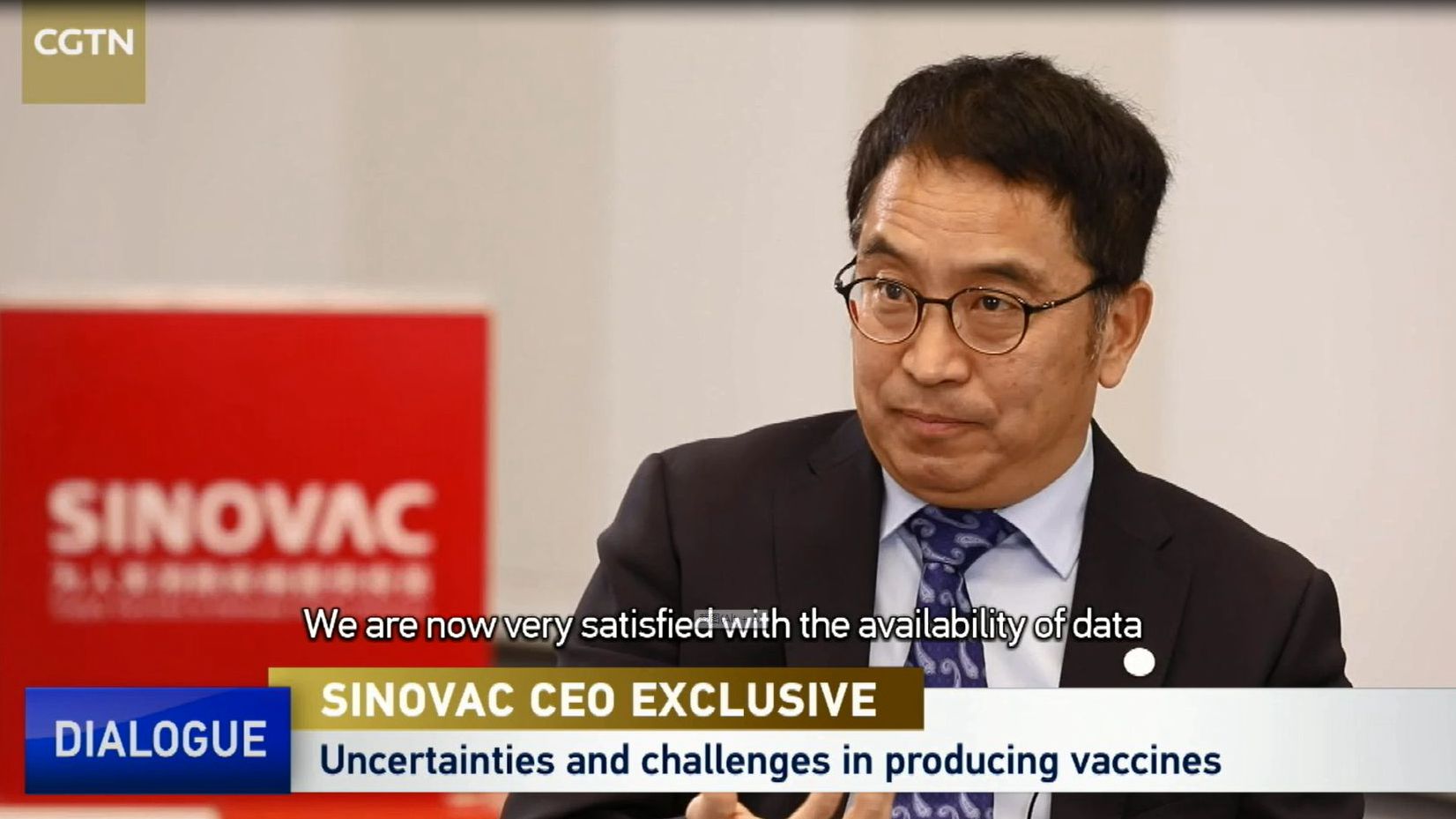
Dr. Yin said there have been many challenges in vaccine development, such as understanding the biology of the new virus, creating an industrial product, conducting clinical trials, and implementing a vaccine roll-out.
Due to the low incidence rate of COVID-19 in China, Sinovac had to conduct Phase III clinical studies outside of the country, which is rare for Chinese vaccines, Dr. Yin said, adding that Brazil, Chile, Indonesia, and Turkey ended being chosen due to the severe epidemic situation and large populations.
"There is a very good protective effect after vaccination against severe illness, hospitalization and death. But the protection rate of the vaccine against overall infection is low," he said about the results on health workers in Brazil. "Infection is also reduced, but it doesn't reach 100 percent."
Phase III clinical studies of CoronaVac also revealed differences in protection ratios in different geographical areas: 91.25 percent in Turkey and around 60 percent in Indonesia. Dr. Yin said it was normal because the risk of infection, the composition of the test population, and the level of surveillance were different in different countries.
"It wasn't expected, but designed. Phase III is not a sports competition in which you have to be first to be number one. Instead, we use multiple sets of data to analyze the combination of antibodies that are produced after being given a vaccine."
Hong long will immunity last after taking a vaccine?
01:22
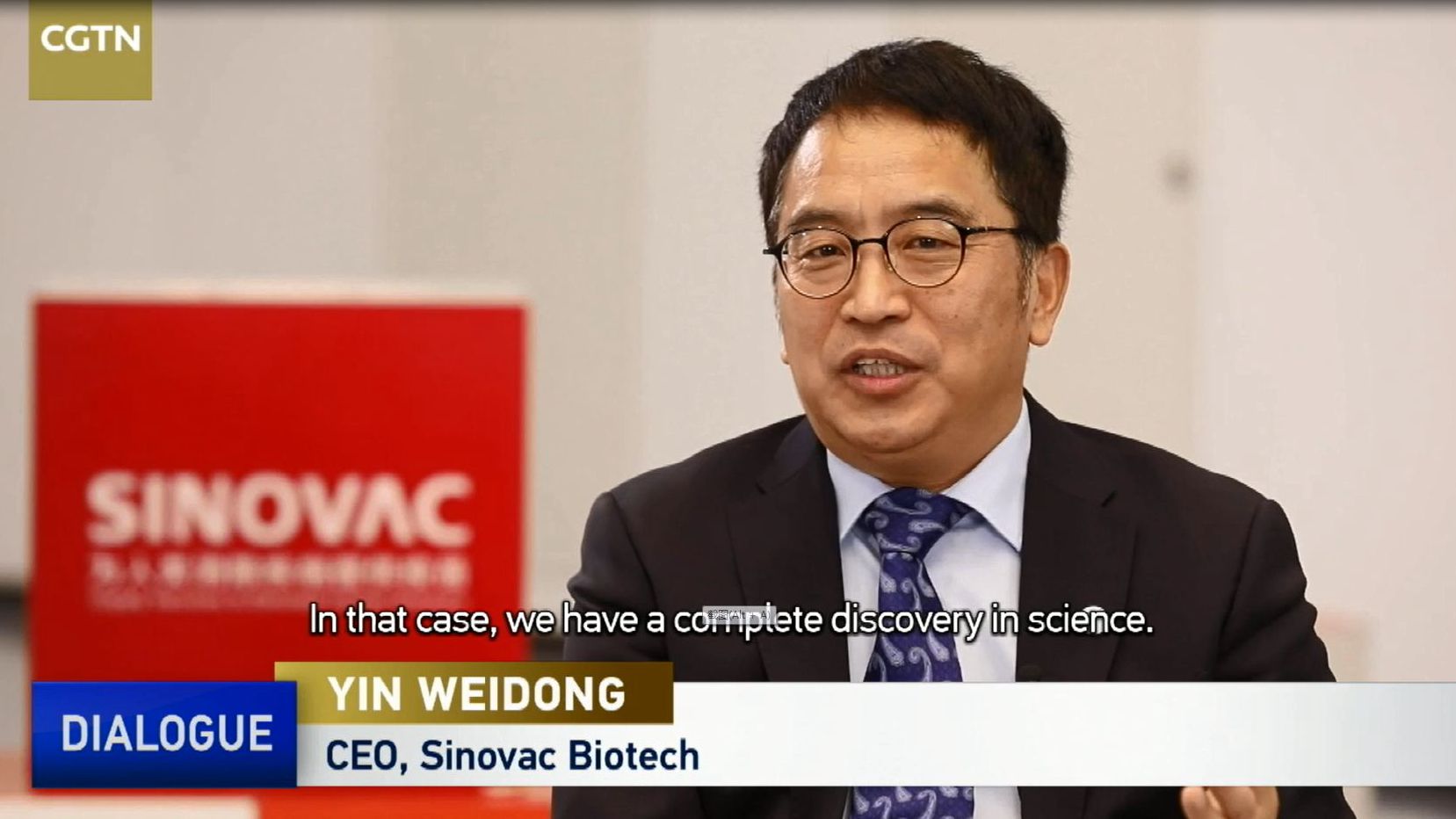
Regarding the time limit of vaccine protection, one of the biggest concerns of the public, Dr. Yin said the protective effect usually appears after half a month and will stay strong for at least two months, but questions such as how long the protection will last and how strong it will be after six months are being studied by domestic and foreign vaccine developers.
Dr. Yin added that there is a solution to deal with reduced effectiveness: "If the protection rate, or protective effect falls, then take a third injection. We are currently doing a study on the third shot, and the data is now being analyzed."
Dr. Yin said clinical trials have shown that it's unlikely the infection will be completely eliminated by vaccination because the relationship between the virus and the human host is not a one-time infection.
"I have a goal in mind, to quickly turn the coronavirus into influenza. In that case, we have vaccine, and we know what's going to happen, so that we don't have to quarantine it at the enormous cost that we have as a society," he said, expressing his hope.
Can we tackle the mutations?
01:39
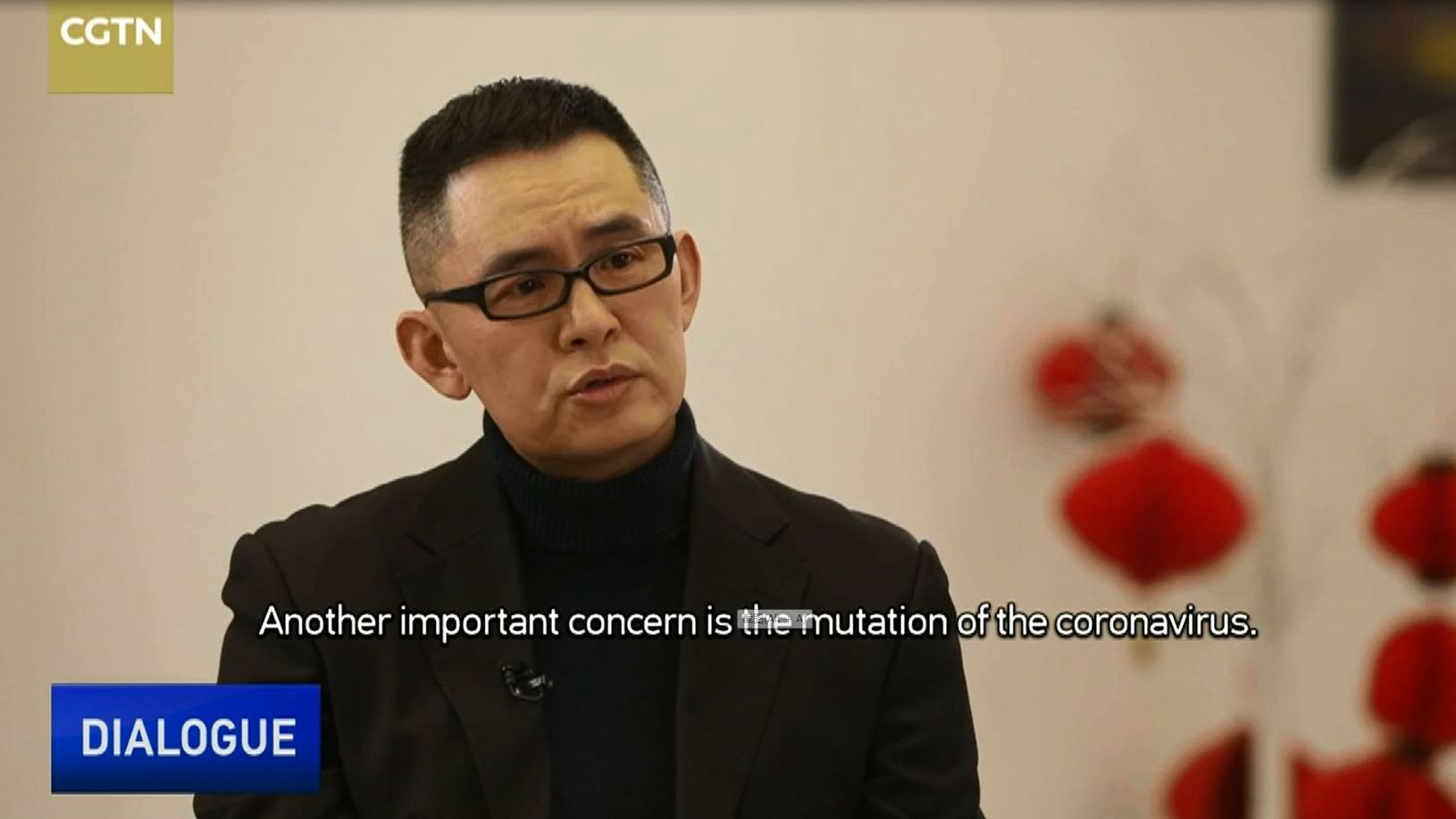
Another important concern is the mutation of the coronavirus. Now there is UK, South African, and Brazilian variation, meaning that with frequent mutations, it's possible the current vaccine will fail at some point.
Dr. Yin said these mutations are being tracked, so the way to deal with them is now clear. "Even if it mutates, we can use the current research to effectively develop new vaccines."
"It is a natural phenomenon. Virus mutation occurs continuously, for sure. In the past, it was endemic only locally, and the mutation rate was low. With more than 100 million cases worldwide, the chance of mutating must be increasing."
He added that when they found a virus in January of last year, they were able to do vaccine research quickly, and deliver vaccines and immunizations on a large scale. "Now it's mutated. The thief: we've got him."
Which vaccine to take?
00:46
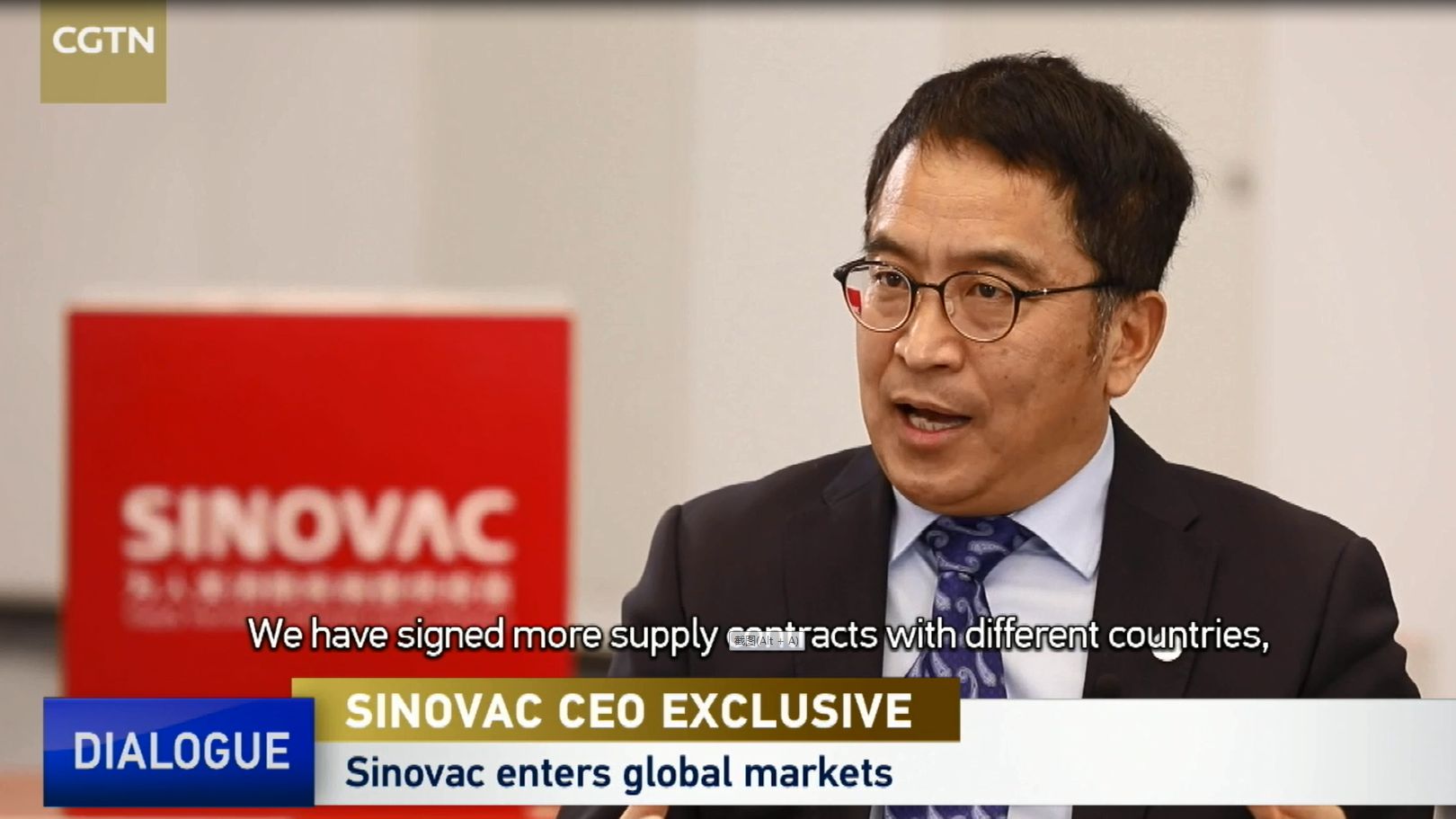
There are currently different types of vaccines developed by companies from different countries available. How should countries and the general public choose? Is there competition between different vaccine makers?
Dr. Yin said every vaccine is good. "The choice of vaccine is a blessing for the public. They should be vaccinated as soon as possible. Whichever vaccine you choose, whether in China or around the world, it is a blessing to have any vaccine available."
As for CoronaVac's entry into Europe and the United States, Dr. Yin said it's a two-way choice that is determined by whether Sinovac has the production capacity and whether they have the demand.
"When we were doing Phase III clinical trials, we saw countries with severe disease, large population and no vaccine development capacity. And those were not European or American countries. So, our main goal now is to vaccinate more people in more countries, not to get into any single market, which is a property of public goods."
"Dialogue" is a prime time English-language daily talk show on CGTN. The 30-minute program covers a wide range of domestic and international topics, providing a balanced and critical perspective on current affairs and analysis within the framework of cross-cultural and multi-disciplinary comparisons.
Schedule: Monday-Sunday
Time (GMT): 03:30, 11:30, 19:30
(If you want to contribute and have specific expertise, please contact us at opinions@cgtn.com.)

